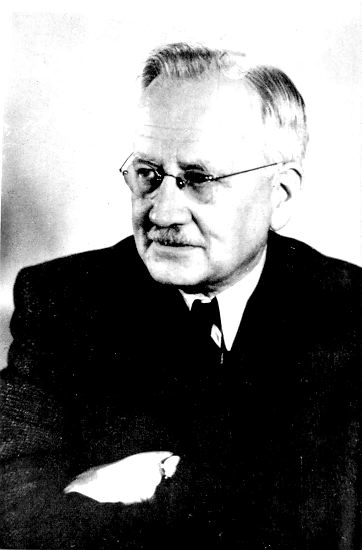<Back to Index>
- Philosopher and Logician Kazimierz Ajdukiewicz, 1890
PAGE SPONSOR


Kazimierz Ajdukiewicz (December 12, 1890, Ternopil, Galicia – April 12, 1963, Warsaw, Poland) was a Polish philosopher and logician, a prominent figure in the Lwów – Warsaw school of logic. He originated many novel ideas in semiotics, including the "categorial grammar" used by many formal linguists. Ajdukiewicz fields of research were scientific methodology and logical theory of science.
Ajdukiewicz studied at the University of Lwow, and lectured there, in Warsaw and in Poznan. He was Rector of the University of Poznan between 1948 and 1952. He was one the founders of the journal Studia Logica in his current incarnation, editing it from 1953 to his death.
In his early epistemological system, which he called Radical Conventionalism, Ajdukiewicz analyzed any language as a set of expressions or sentences, with inferential rules of meaning that specify the relation of one expression to another, or to external data. There are three kinds of rules: Axiomatic, Deductive, and Empirical. Following the rules, one can map all knowable sentences of a language. However, some languages' vocabularies can produce disconnected sentences, which are only partly mapped by the meaning rules. Therefore, when one uses a language, even scientific one, a conceptual apparatus, an untranslatable set of meanings, is needed too, and with it a choice of the problems to be settled. For this reason the theory is a form of Conventionalism, and it is radical because even simple experiential reports are exposed to these language - wide considerations. Ajdukiewicz discarded this theory as the 1930s progressed.